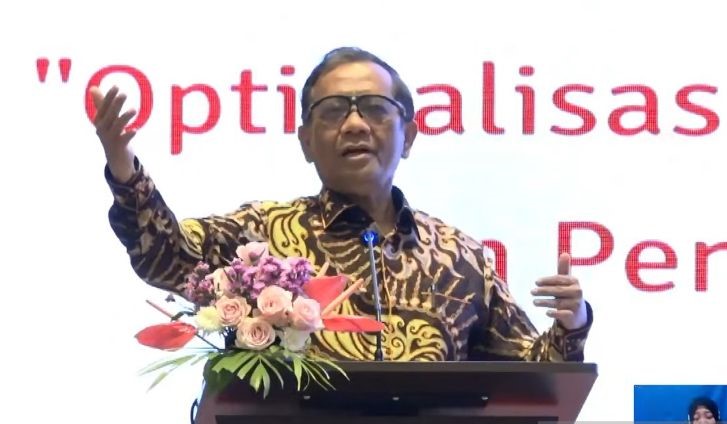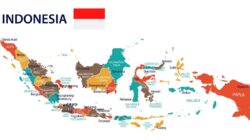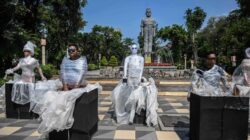Jakarta, Indonesia – As the nation’s concept and the source of all laws, the state ideology Pancasila must serve as the foundation for the enactment of legal products in Indonesia.
The words were given by Mahfud MD, Coordinating Minister for Political, Legal, and Security Affairs, during his keynote lecture on the second day of a virtual international conference themed “Freedom of Religion, Legal Supremacy, and Cross-Cultural Religious Liberation.”
“Pancasila is the fundamental value of the Constitution, which serves as the top source of laws, determining the content of lower legal goods and serving as the validity measurement of norms in legal products. This means that Pancasila creates laws “According to a press release issued in Jakarta on Thursday, he remarked.
Based on Pancasila, he developed four principles for enacting laws. First, the laws must ensure national integration, including intellectual and territorial integration.
He stated that the laws must not disintegrate the nation or lead it to an ideology other than Pancasila.
Second, legislation must protect democracy and nomocracy. According to the minister, democracy means that laws must reflect the people’s aspirations and sovereignty, whereas nomocracy indicates that laws must uphold truth or give rise to legal sovereignty.
“Democracy strives for victory, while nomocracy strives for truth. The Pancasila state is the convergence of endeavors to win victory and truth,” he stated.
Third, laws must foster the construction of social justice by closing the gap in the community, as expressed, among other things, by the Gini ratio. The Gini Index in Indonesia highlights discrepancies in the spending habits of the Indonesian population.
Fourth, rules must not be based solely on a particular religion.
“Muslims, for example, have legal protection to fast freely. However, because religious service is a private matter, the law cannot compel someone to fast,” he stated.
Source: Antara News










